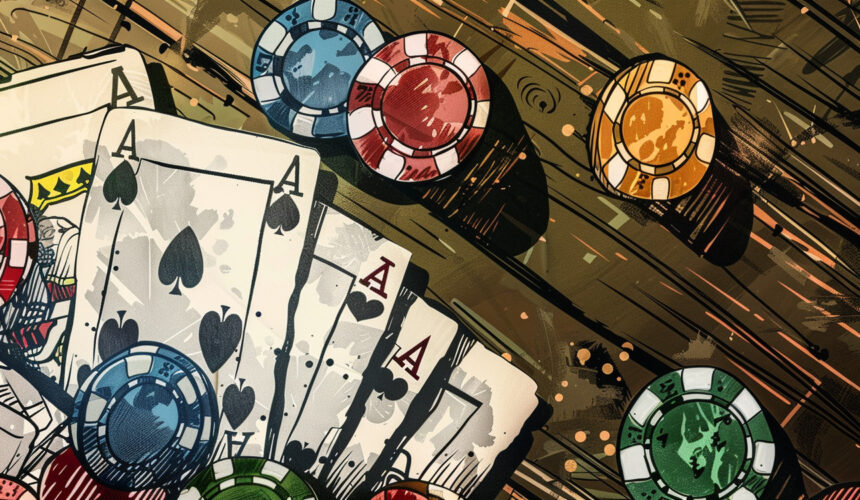Baccarat, a game steeped in history dating back to 15th-century Italy, remains a captivating pursuit for players globally, particularly those engaging in high-stakes wagering. Its allure to high rollers is profound and multifaceted. Historical Context and Evolution of Baccarat Tracing its origins to 15th-century Italy, Baccarat has undergone a significant evolution, transitioning from a game reserved for European aristocracy to a global phenomenon embraced by high rollers and casual players alike. Initially known as “baccara,” meaning zero in Italian, the game was reportedly created by Felix Falguierein, an Italian gambler. The name reflected the fact that all tens, jacks, queens,...
Baccarat Variations: Exploring Chemin de Fer and Punto Banco
Baccarat, a card game steeped in history and intrigue, presents itself in several variations, each offering a unique gaming experience. Among these, Chemin de Fer and Punto Banco stand out as prominent examples. Significance of Chemin de Fer and Punto Banco Chemin de Fer distinguishes itself through player interaction and strategic decision-making, while Punto Banco offers a standardized and simplified gameplay, appealing to a wider audience globally. Baccarat, historically revered as a game of aristocracy, presents players with a compelling challenge: to accumulate points with two or three cards. The game’s allure lies in its simplicity coupled with the potential...
Mastering Blackjack: Essential Tips for Beginners
The paramount objective in Blackjack is to accrue a hand value as close to 21 as possible, without exceeding it. Success hinges on strategically Basic Blackjack Rules and Gameplay Blackjack, also known as 21, revolves around a straightforward premise: achieving a hand value closer to 21 than the dealer, without surpassing it. The game commences with each player, including the dealer, receiving two cards. Players’ cards are typically dealt face up, while the dealer exposes one card (the “upcard”) and conceals the other (the “hole card”). Card values are as follows: number cards retain their face value, face cards (Jack,...
Bankroll Management: How to Play Smart and Stay in the Game
Bankroll management is the foundation for sustained success. It is ensuring funds for continued play, mitigating ruin. It’s not just strategy. The Core Principles of Poker Bankroll Management The principles involve strategic fund allocation, risk assessment, and disciplined execution. Adaptability is key, adjusting to wins, losses and game formats. Defining a Poker Bankroll The poker bankroll represents the total capital a player allocates exclusively for poker activities. It is a segregated fund, distinct from personal or business finances, and serves as the financial foundation for participating in various poker games, whether cash games, tournaments, or Sit & Gos. Establishing a...
The Psychology of Chess: Understanding Your Opponent
The game transcends mere tactical calculation, evolving into a profound psychological contest. Players engage in a silent, mental dialogue, assessing their opponent’s disposition and intentions. Fundamentals of Chess Psychology Chess psychology encompasses cognitive and emotional factors crucial for success. Mastery necessitates understanding pattern recognition, memory, and calculation. Players must regulate emotions, manage stress, and maintain focus. Decision-making is influenced by psychological biases and tendencies. Recognizing recurring strategies enhances anticipation skills. Understanding one’s own psychological state and that of the opponent provides a strategic advantage. The ability to control emotions and maintain composure under pressure is paramount. A player’s psychological profile...
Top 5 Mistakes Beginners Make in Poker and How to Avoid Them
A prevalent error among novice players is engaging in an excessive number of hands pre-flop. Prudent hand selection is crucial; playing only strong starting hands mitigates complex scenarios and facilitates profitable decisions. Avoid the allure of quick-fix secrets. Improper Bankroll Management Neglecting judicious bankroll management constitutes a significant pitfall for fledgling poker enthusiasts. While participation at the lowest stakes might not necessitate an extensive reserve, adherence to sound principles remains paramount. A generally accepted guideline dictates maintaining twenty to thirty buy-ins for the specific limit at which one engages. For instance, in a $1/$2 game, a bankroll ranging from $2,000...







